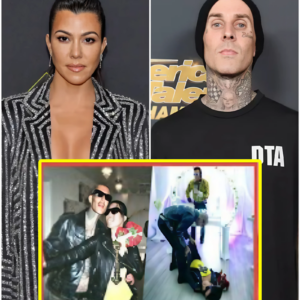The Ice Cube and Ricky Smiley Controversy: A Deep Dive into ‘Friday After Next’
The entertainment industry is no stranger to drama, but the recent feud involving Ice Cube, Ricky Smiley, and Cat Williams has stirred quite a buzz. The conflict primarily revolves around casting decisions for the 2002 comedy film “Friday After Next,” with Ice Cube and Ricky Smiley offering differing accounts of behind-the-scenes events.
Ice Cube’s Perspective
In a recent statement, Ice Cube addressed the controversy head-on. According to Cube, the film, which was released over two decades ago, involved various comedians who auditioned for roles, including Ricky Smiley and Cat Williams. Cube emphasized that his casting decisions were based solely on the talent and suitability of the actors for their respective roles.
Cube clarified that Smiley auditioned for the role of Money Mike, a character that ultimately went to Cat Williams. According to Cube, Smiley was considered for the role but was eventually cast as Santa Claus due to a better fit for the character. Ice Cube praised Williams for his performance, noting that his portrayal of Money Mike was so compelling that the character’s role was expanded during filming. Cube described the role of Money Mike as initially small but growing in significance due to Williams’ exceptional improvisation and on-screen presence.
Addressing another point of contention, Ice Cube refuted claims that there were plans for a rape scene in the movie. He stated that such scenes are not part of his style and emphasized that any mention of such content was misrepresented. Cube explained that the villains in “Friday After Next” included Santa Claus, a recently released convict, and Money Mike. The plot required interactions between these villains, but Cube insisted that the supposed rape scene was never part of the script.
Cube also discussed the financial aspect of the film, noting that “Friday After Next” was produced on a low budget. He highlighted that the limited funds were directed toward production quality rather than high salaries for actors. Cube reflected on the opportunities he provided to comedians and how the success of the film contributed to their careers.
Ricky Smiley’s Rebuttal
Ricky Smiley, in response, offered his own take on the situation. Smiley was vocal about his audition experience, claiming that he initially auditioned for the role of Money Mike and was later reassigned to the role of Santa Claus. Smiley criticized Cat Williams for allegedly misrepresenting the casting process, asserting that he was indeed considered for Money Mike before the role was given to Williams.
Smiley also disputed Ice Cube’s claims regarding a supposed contract stipulating that he would only work with Cube if he donned a dress. He mentioned that his next project, “First Sunday,” involved him wearing a dress, but this was due to the nature of the role and not a contractual obligation. Smiley accused Williams of being bitter and spreading misinformation, and he challenged Williams’ narrative of the casting process.
Smiley’s statements were backed by his former manager, Gary ABDO, who confirmed that Smiley auditioned for Money Mike but was later given a different role. ABDO supported Smiley’s version of events and highlighted Williams’ breakout performance, which elevated his career significantly.
Conclusion
The controversy between Ice Cube, Ricky Smiley, and Cat Williams highlights the complexities of film production and the challenges of accurately representing behind-the-scenes dynamics. While Ice Cube maintains that his casting choices were based on talent and suitability, Smiley’s response underscores the competitive nature of the entertainment industry and the personal grievances that can arise. As both parties present their sides of the story, the dispute serves as a reminder of the sometimes murky and contentious nature of Hollywood.
In the end, “Friday After Next” remains a beloved comedy, with memorable performances by its cast. The film’s success and the careers it helped launch are a testament to the collaborative effort that went into its making, despite the disagreements that may have surfaced along the way.
News
(B) Travis Barker MISSED when Kourtney Kardashian returned home drunk after Kardashians party. (VIDEO)…
Courtney Kardashian made headlines just seven weeks after giving birth when she decided to attend the annual Kardashian Jenner Christmas party sans pants. Despite recently welcoming her fourth child, Rocky, with boyfriend Travis Barker, Courtney seemed anything but tired as…
(B) Kourtney Kardashian Shocking Revelation on Why Her Relationship with Travis Barker Ended. (VIDEO)…
In the public eye, Travis Barker and Courtney Kardashian’s relationship was once perceived as an unbreakable union, filled with passion and devotion. However, recent revelations paint a vastly different picture, revealing the underlying turmoil that ultimately led to its demise….
(B) Kourtney Kardashian SECRET XTAPE With Minor Justin Bieber REVIEWED by The Feds. (VIDEO)
The recent discovery of a video purportedly featuring Courtney Kardashian and Justin Bieber has ignited a firestorm within the entertainment industry, prompting intense speculation about its potential ramifications. This revelation, coupled with reports of a raid on Diddy’s home, has…
(B) EXTREMELY SHOCKING: Kris Jenner Lied About DNA Test To Khloe Kardashian As O.J. Simpson Could Be Her Father. (VIDEO)..
In a moment etched into the memories of internet users, Chris Jenner once orchestrated a dramatic DNA test to dispel rumors surrounding Khloe Kardashian’s paternity. Speculations swirled, stemming from Jenner’s revelations in her memoir “Chris Jenner and All Things Kardashian,”…
(B) Kourtney Kardashian finally shows proof her son Reign Disick is actually Justin Bieber’s son. (VIDEO)..
Courtney Kardashian recently embarked on an exciting escapade to Australia and New Zealand with her husband, Travis Barker, for his tour. However, it was their youngest son, Rain, who stole the spotlight during their adventures. With his mischievous antics and…
(B) NEWS HOT; Travis Barker Found Evidence of Kourtney Shared Baby With Justin Bieber (video)…
The rumor mill surrounding Justin Bieber and the Kardashian family has been churning for quite some time, igniting speculation about his connections with various members. While the details are murky and often sensationalized, let’s delve into the complexities of these…
End of content
No more pages to load











